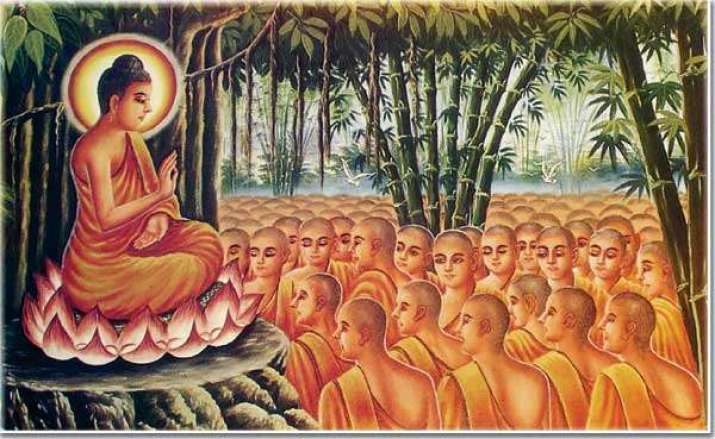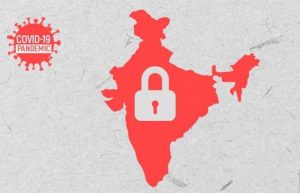
There are many good translations of what the Buddha said about the Karmic Results of our Actions, some of which I have excerpted from Venerable Nyanatiloka Maha Thera’s classic work, The Buddha’s Path to Deliverance (1952):
From AN 10:205 the Buddha is quoted as saying,
“Beings are the owners of their deeds (kammaorkarma), heirs to their deeds, their deeds are the womb from which they sprang, they are bound up with their deeds, their deeds are their refuge. Whatever deeds they do—good or evil —of such they will be the heirs.
There is one who destroys living beings, takes what belongs to others, has unlawful intercourse with the other sex, speaks untruth, is a tale bearer, uses harsh language, is an empty prattler, is covetous, cruel minded, follows evil views.
And he is creeping in his actions by body, speech, and mind. Hidden are his deeds, words, and thoughts, hidden his ways and objects. But I tell you: whoever pursues hidden ways and objects will have to expect one of these two results: either the torments of hell or birth among the creeping animals.
Thus it is with the rebirth of beings: they will be reborn according to their deeds (kamma). And having been reborn, they will experience the result of their deeds. Therefore, I declare: beings are the owners and heirs of their deeds. Their deeds are the womb from which they sprang, they are bound up with their deeds, their deeds are their refuge. Whatever deeds they do—good or evil—of such they will be the heirs.”(Nyanatiloka 19, 1952).
From AN 40, the Buddha is quoted on the Results of Immoral Actions:
“The destroying of living beings, O Monks, committed, carried-out, and often pursued, leads to hell, the animal world, or the realm of ghosts. Even the least result of destroying living brings a short life.
The taking of other people’s belongings, committed, carried out, and often pursued, leads to hell the animal world, or the realm of ghosts. Even the least result of talking other people’s belongings brings the loss of one’s goods.
Unlawful sexual intercourse, committed, carried out, and often pursued, leads to hell, the animal world, or the realm of ghosts. Even the least result of unlawful sexual intercourse brings enmity from one’s rivals.
Lying, committed, carried-out and often pursued leads to hell, the animal world, or the realm of ghosts. Even the least result of lying brings false accusations.
Tale bearing, committed, carried-out, and often pursued, leads to hell, the animal world, or the realm of hungry ghosts. Even the least result of tale bearing brings discord with one’s friends.
Harsh language, carried-out, often committed, and often pursued, leads to hell, the animal world or the realm of ghosts. Even the least result of harsh language brings exposure to displeasing words.
Vain prattle, committed, carried-out, and often pursued, leads to hell, the animal world, or the realm of ghosts. Even the least result of vain prattle brings one to hear unacceptable words.
Taking intoxicating drinks, such as wine and liquor, committed, carried-out and often pursued, leads to hell, the animal world, or the realm of ghosts. Even the least result of taking intoxicating drinks brings insanity.”(Nyanatiloka 23-24, 1952)
From AN 3:33, the Buddha is quoted on the Three Roots of Evil Action,
“There are, Monks, three root conditions for the doing of actions (kamma), namely: greed (lobha), hate (dosa), and delusion (moha) . . .
The action, O Monks, that is done out of greed, that has arisen through greed, that is produced by greed, this action will ripen wherever the action ripens, there the being reaps the fruit of that action, be it in this life, or in the next life, or in future lives.
The action that is done out of hate, that has arisen through hate, that is produced by hate, this action will ripen wherever the being is reborn, and wherever the action ripens, there the being reaps the fruit of that action, be it in this life, the next life or in future lives.
The action which is done out of hate, that has arisen through hate, that is produced by hate, this action will ripen whenever the being is reborn; and wherever the action ripens, there the being reaps the fruit of that action, be it in this life, in the next life, or in future lives.
The action which is done out of delusion, that has arisen through delusion, that is produced by delusion, this action will ripen wherever the being is reborn; and wherever the action ripens, there the being reaps the fruit of that action, be it in this life, in the next life, or in future lives.
It is just as with unhurt and unspoiled seed, undamaged by the wind and the sun’s heat, healthy and well preserved, which after being sown in rich soil and well-prepared ground, will, owing to plentiful rainfall, will shoot up, attain growth and full development.” (Natantiloka 24-25, 1952)
From SN 22:99, the Buddha is quoted on the Causes of Rebirth,
“There will come a time, O Monks, when this mighty ocean will dry up, disappear and be no more. But there will be no end to suffering to beings, who, obstructed by ignorance and fettered by craving, are hurrying and hasting through the round of rebirth. Thus I say.
There will come a time when this mighty earth is devoured by fire, destroyed and be no more.
But there will be no end to suffering, to beings who obstructed by ignorance and fettered by craving, are hurrying and hastening through this round of rebirths. Thus I say.” (Nyanatiloka 25-26, 1952)
In AN 10:208, the Buddha is quoted concerning the Cessation of Karma,
“It is not possible O Monks, I say, that regarding willed, performed, and heaped up actions (kamma), as long as one has not yet experienced their results, be it in this life, the next life or in future lives.
And it is not possible, I say, that without oneself having experienced the results of the willed, performed and heaped up actions, one can put an end to suffering.” (Nyanatiloka 26, 1952)
From AN 3:55, the Buddha is quoted on Cessation andNibbana,
“Through greed, hate, and delusion, overwhelmed by greed, hate, and delusion, one aims at one’s own ruin, other’s ruin, at the ruin of both, and one suffers mental pain and grief.
If, however, greed, hate, and delusion are given up, one aims neither at one’s own ruin, nor at other’s ruin, or the ruin of both, and one suffers no more mental pain and grief.
This is Nibbana, realizable, even during lifetime, immediate, inviting, attractive, and comprehensible to the wise.
Now, in so far as the monk has realized the complete cessation of greed, hate, and delusion, in so far is Nibbana realizable, immediate, inviting, attractive, and comprehensible to the wise.”(Nyanatiloka 28, 1952)
We have to experience the karmic effects of our actions.
Reference
Nyanatiloka Maha Thera. 1952. The Buddha’s Path to Deliverance. Kandy: Buddhist Publication Society.












